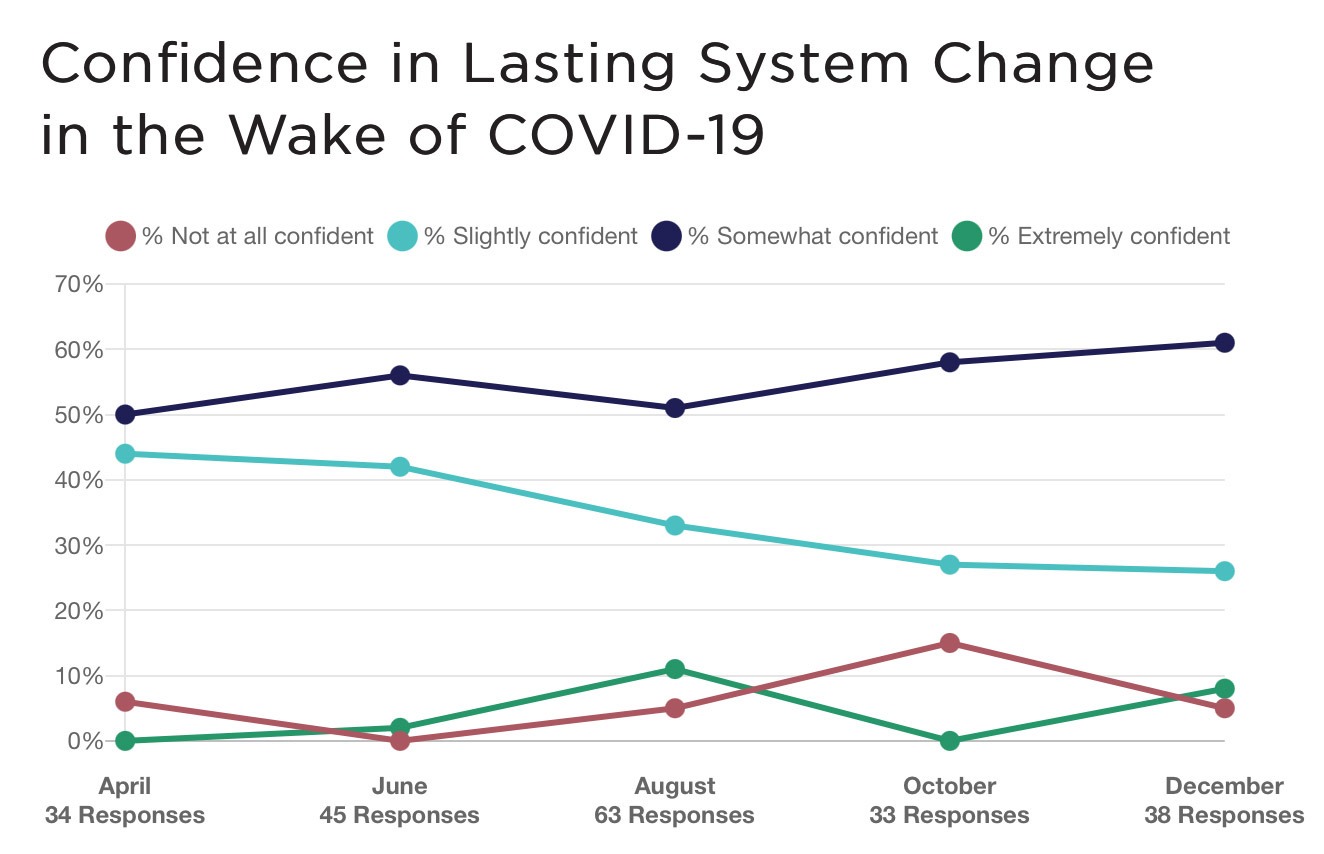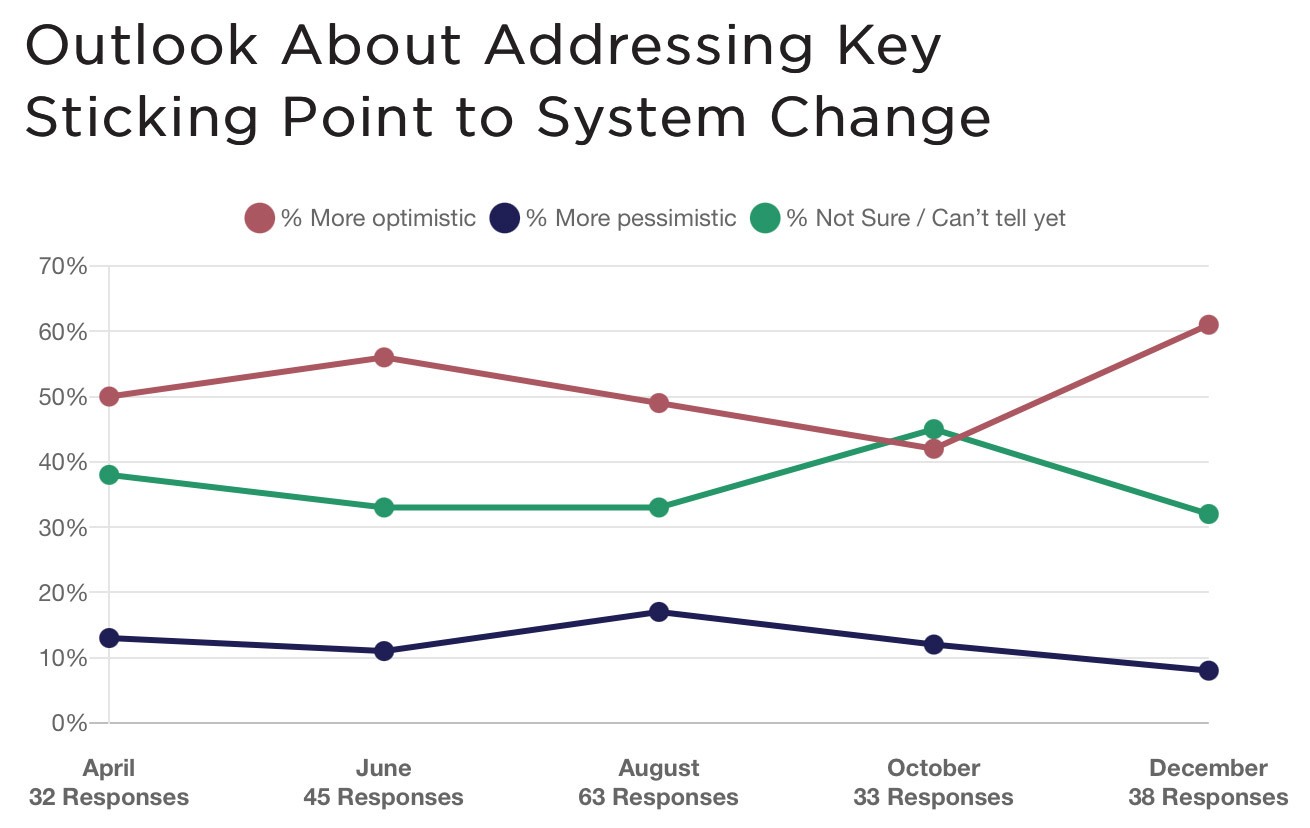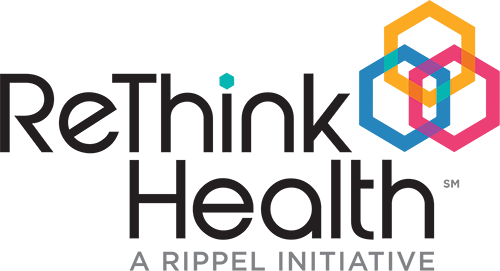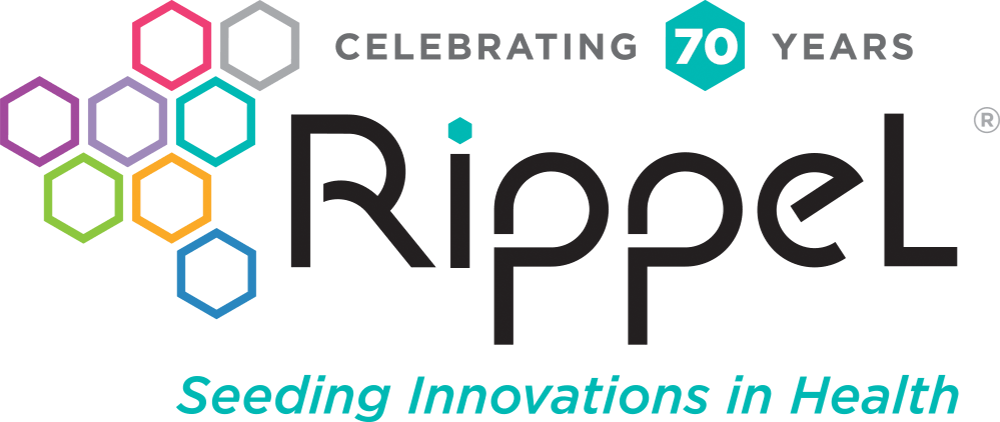Fatigue. Optimism. Frustration. Persistence. These are the varied emotions and mixed signals ReThink Health encountered in response to our December Tracking Poll for Stewards of Well-Being. This was our final bi-monthly survey, which was designed to find out how stewards are navigating systems change in the midst of Covid-19, racial injustice, economic recession, divisive electoral politics, and ecological catastrophes. We launched the survey in April 2020 and fielded it every other month until the end of the year. In December, we heard from 38 leaders working locally and nationally across many areas of practice, including community-based organizations, philanthropies, local public health agencies, educational institutions, and more.
Here are the highlights from the final poll in this series.
Stewards expressed renewed confidence in lasting systems change.
In the October poll, 58% of stewards reported feeling confident that lasting systems change is on the horizon. At the end of 2020, however, they experienced a rebound, with 69% of respondents indicating they are extremely or somewhat confident that lasting systems change will be achieved. The lower confidence level in October was likely due to exhaustion from Covid-19, crises related to electoral politics, and lack of large-scale concrete action to address racial inequities. In December, stewards cited a more supportive federal policy landscape as well as greater familiarity with adjusting to Covid-19 as reasons for greater optimism.

With increased ability to navigate the constraints of the pandemic, stewards have begun to consider how to thoughtfully tackle the deeper sticking points while also continuing to respond to emerging immediate crises.
Ulcca Hansen, from Educating Potential, reflects, “[we] are struggling with balancing urgent and immediate needs…pandemic fatigue…against the reality that to truly disrupt the default direction of the education system, it will take thoughtful, deep work—and such change will not be quick.”
Stewards identified organizational benefits to multi-solving
Each bi-monthly tracking poll has included a spotlight question regarding an especially salient stewardship practice. The December spotlight focused on multi-solving, which focuses on solving several problems simultaneously. Most respondents are already engaging in multi-solving or see its virtues and want to deepen this practice: 47% said that multi-solving sounds like “a new name for how I usually think and act,” and 45% indicated it is “a promising practice that I would like to develop further.”
Stewards identified many benefits of multi-solving for their organizations. In particular, stewards are drawn to the practice because it helps them make the case for systems change and co-design solutions from diverse perspectives. Notably, the practice allows stewards to come together across their organizational siloes to build sufficient will to tackle intractable systemic issues.

While its benefits are clear, successful multi-solving often requires the orchestration of complex stakeholder engagement processes. In our January “Amplifying Stewardship Together” virtual meeting, which also focused on multi-solving, stewards reflected that multi-solving with diverse stakeholders is similar to producing art and music collaboratively (like a DJ) rather than implementing a blueprint within a more homogenous stakeholder group. The practice requires stewards to constantly pivot as they sequence unconventional stakeholder interactions. Additionally, stewards find that they must multi-solve when they engage with residents, because residents’ needs occur and must be met across sectors that generally operate in siloes. For example, helping residents gain access to affordable health care requires collaboration among health care institutions, financial institutions, and government and community leaders.
We look forward to learning more about how stewards are persisting in their efforts—including through multi-solving—during this time of turbulence and possibility. While the tracking poll series has ended, the ReThink Health team is exploring opportunities to continue our dialogue with stewards in 2021. Stay tuned!

